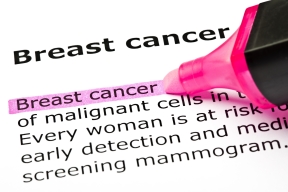What is Your Risk for Developing Breast Cancer?
Mammograms can be used to check for breast cancer in women who have no signs or symptoms of the disease. This type of mammogram is called a screening mammogram and should be performed regularly. But there is more women can do to be proactive about their breast health, says Dr. Shawn Conwell, McLeod Breast Imaging Director.
“When a woman undergoes an annual screening mammogram, she also completes a breast health risk assessment. This tool, known as the Tyrer-Cuzick score or TC score, allows us to determine a woman’s lifetime risk for developing breast cancer.
If the TC score is above 20, it is recommended that a woman consider a high risk assessment, genetics counseling, and/or additional screening with a breast MRI. A TC score between 15 to 19 indicates an intermediate lifetime risk.
In these cases, we recommend an additional screening with ultrasound, particularly if the woman has dense breasts. The risk for breast cancer depends on a woman’s health history and family history.”
How Can I Learn More?
The American Cancer Society (ACS) encourages women who are concerned about their risk of breast cancer to educate themselves about the contributing factors that can lead to the disease. Whether you have a history of breast cancer or other cancers in your family, or if you are simply curious about genetic testing, your primary care provider can help. You can also find out more about breast cancer risk factors here.
Keep in mind, regular screenings combined with a breast health risk assessment provide valuable information about your breast health. The following recommendations can help guide you when you talk with your doctor about screening for breast cancer:
- Women ages 40 to 44 should have the choice to start annual breast cancer screening with mammograms (x-rays of the breast) if they wish to do so.
- Women age 45 to 54 should get mammograms every year.
- Women 55 and older should switch to mammograms every 2 years, or can continue yearly screening.
- Screening should continue as long as a woman is in good health and is expected to live 10 more years or longer.
Everyone is at risk of breast cancer, but some women are at a higher risk than others. Learning about your breast cancer risk can empower you to make important breast care decisions and to take charge of your health. Contact the McLeod Breast Health Center for more information.
-
McLEOD REGIONAL MEDICAL CENTER FLORENCE
843-777-2000 -
McLEOD DARLINGTON
843-777-1100 -
McLEOD DILLON
843-774-4111 -
McLEOD LORIS
843-716-7000 -
McLEOD SEACOAST
843-390-8100 -
McLEOD CHERAW
843-537-7881 -
McLEOD CLARENDON
803-433-3000



-
McLEOD REGIONAL MEDICAL CENTER FLORENCE
843-777-2000 -
McLEOD DARLINGTON
843-777-1100 -
McLEOD DILLON
843-774-4111 -
McLEOD LORIS
843-716-7000 -
McLEOD SEACOAST
843-390-8100 -
McLEOD CHERAW
843-537-7881 -
McLEOD CLARENDON
803-433-3000
 Find a Doctor
Find a Doctor  Locations
Locations  Services
Services 